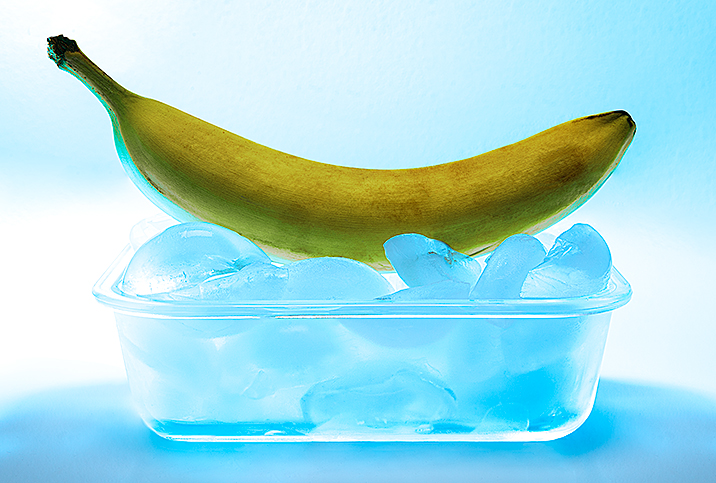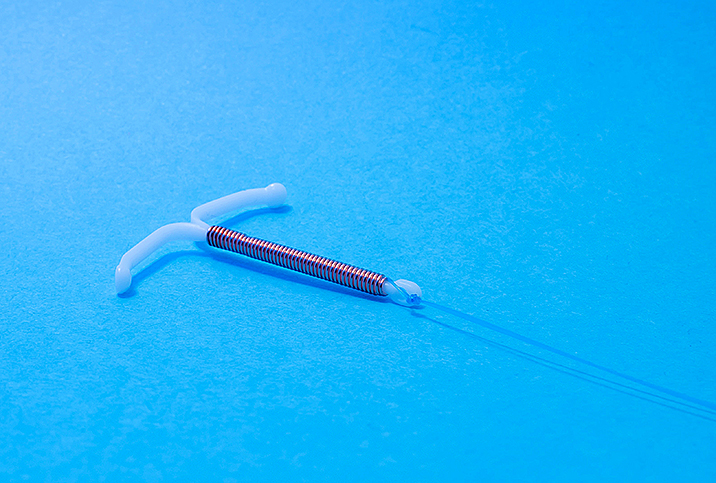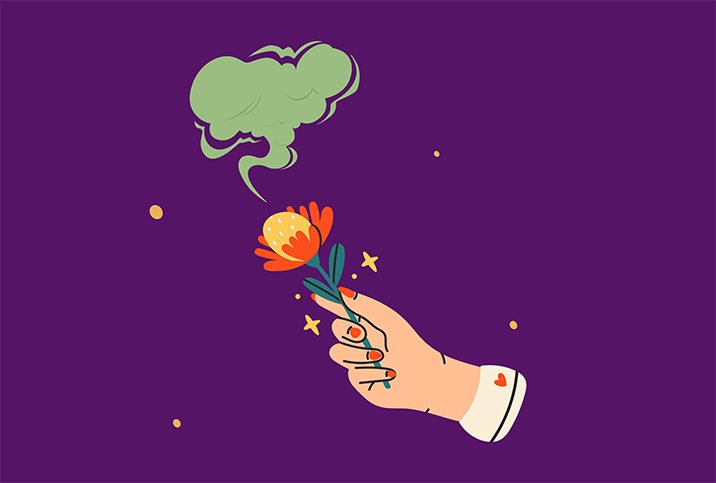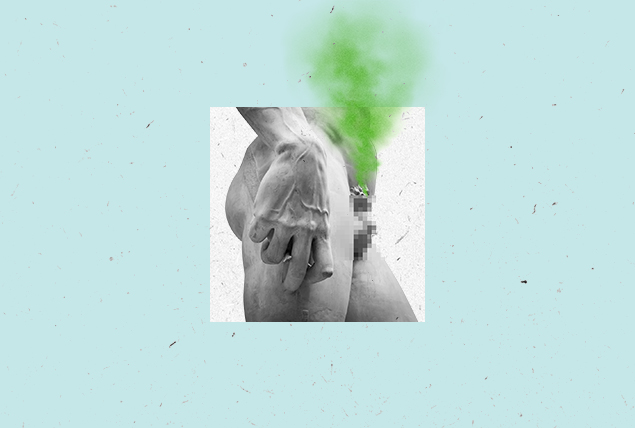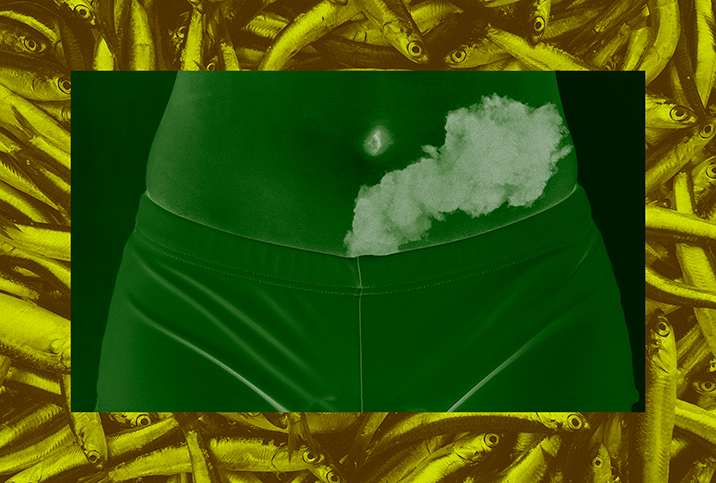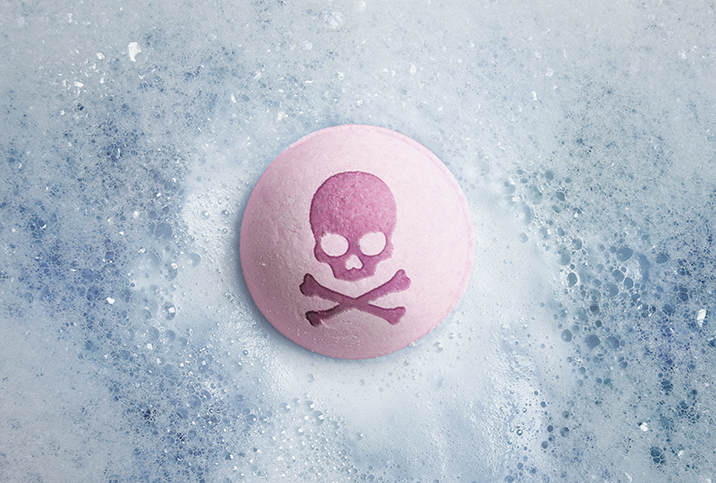Are Your Favorite Foods Causing a Funk Down There?

The old saying goes, "You are what you eat," but what does that really mean? It might just be easier to parrot a cliché than track down the truth, especially when it comes to something as hush-hush as our sexual organs.
The real truth: It's hotly debated whether our diet has anything to do with how our genitals smell and taste—even the experts are reluctant to make a call between fact and fiction.
The taste test
Even though the initial question is simple, the answer, according to registered dietitian Vivianne Swart, is quite complex. Does what you eat affect how you taste?
"Yes and no," Swart said. "Anecdotally, many people report positive changes in the taste of semen with consumption of sweet or hydrating foods, while reporting that foods like garlic or asparagus create a more bitter or pungent taste. There is sugar in semen, so perhaps it could increase the sweetness with sweet foods, but no studies have shown this.
"When it comes to the vagina, keep in mind that attempting to change the smell could result in infection," Swart continued. "The vagina has a delicate pH balance that needs to be maintained—otherwise, there is a risk of infection. You don't need to scrub or wash the inside of your vagina with washes, douches or other hygiene products—just give the outside a good cleaning with water."
But maybe there are foods to avoid ingesting that could cause a pungent odor, such as spices, coffee or other dietary supplements?
"The rumored foods that may give semen a musky, bitter smell and taste include garlic, onions, cruciferous vegetables like broccoli and cabbage, leafy greens, asparagus, meat and dairy," Swart said. Take note of that "rumored."
'If you don't practice good hygiene, it's not going to be great down there regardless of what you eat, drink or otherwise ingest.'
Swart said that the chemical composition of each person is unique, thus some foods may cause smells in some people while having little to no effect on others. With that being said, if you're concerned about which foods cause what smells, it's reasonable to correlate that if something tastes bitter when you're eating it, there may be bitterness later. And so on.
"How you mix with chemicals and nutrients in these foods will vary," she said. "You'll notice many of these foods tend toward a bitter taste, so we're going with the hypothesis that it translates to more bitter semen or vaginal fluids. Some people also notice they sweat more when eating spicy foods, which may result in a saltier taste."
So how much does what we eat or drink actually affect taste and odor in the genital area?
"Hygiene is the real key when it comes to taste and smell," she said. "If you don't practice good hygiene, it's not going to be great down there regardless of what you eat, drink or otherwise ingest. With the limited studies, food seems to have a minimal effect, hydration a moderate effect and hygiene the maximum effect. Additionally, women will have more variation because the taste and smell of the vagina can change depending on where they are in their monthly cycle. For example, closer to the menstrual cycle, or during it, will produce a more metallic taste."
Do superfoods equal super smells?
Rumor has it that hydrating fruits or vegetables, such as pineapple, strawberry and celery, can make things taste and smell better. True or false?
"We don't have any conclusive evidence or research showing this link," Swart said. "However, if your partner notices a difference, it wouldn't hurt to keep eating these healthy foods. The hypothesis is that these foods help cut down on the alkalinity of semen, which may make it more tolerable to some. Semen being more alkaline serves a reproductive function to protect it in the acidic environment of the vagina, but results in a naturally bitter taste. Celery in particular is high in vitamin C, but your semen won't be tasting like orange juice anytime soon."
Apart from foods, Swart adds that simply drinking water can have a huge impact on your smell and taste.
"What may be playing the largest role here is hydration. Drinking more water may be the solution rather than specific foods," Swart explained. "It allows for adequate water content in semen (semen is about 80 percent water) and for the proper production of vaginal fluids and mucus. Dehydration, particularly from excessive alcohol or coffee intake, may make for a more pungent taste."
What about my pee?
Many say it's a good rule of thumb that if you can smell the food or drink in your urine, it will also transfer to a not-so-pleasant taste down there.
"Foods that produce a strong odor [in your urine], such as broccoli and garlic, may make semen taste or smell worse," Swart said. "Likewise, foods that tend to change the appearance or smell of other bodily fluids, such as asparagus or coffee, may also change the taste of semen. If a person notices that a specific food changes their body odor, it may also change the way their genitals smell or taste."
When it comes to the relationship between odors and food, diet likely doesn't play a huge role. However, staying hydrated and incorporating foods with a high percentage of water won't hurt. That being said, if you or your partner start to notice that things are smelling or tasting strange, don't be afraid to consult with a medical professional.









